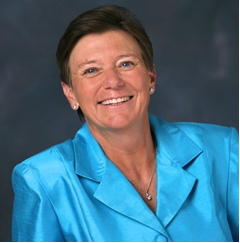AARP Hearing Center

Blog by Jane Barton
Greetings one and all...
Welcome back to The Caregiver’s Cairn - a sustaining and empowering guide for caregivers and care receivers. I hope you and yours have enjoyed a lovely month since my last posting. I invite you to pour a cup of coffee or hot tea, curl up in a cozy chair, and take a deep breath. Today, let’s chat about how we learn to care - for others and for ourselves. Who serves as your role model for caregiving? Care receiving? What is your family legacy of care? What family/cultural patterns of caregiving are you repeating or rejecting? What legacy of care are you conveying to your family and friends?
As you consider these questions, I am sure memories of times past will bubble up. When reflecting on my legacy of care, images of my mom flood my heart and mind. She was the person who taught me how to care for others. She was the quintessential caregiver - compassionate, loving, and selfless. She cared for our family as well as friends, neighbors, and strangers. As her child, I witnessed these interactions and gradually assumed similar attitudes and behaviors. So, when my mom was diagnosed with terminal breast cancer, I naturally assumed the role of caregiver. Although I was only fifteen years old, I continued the family legacy of care without question. Now, forty years later, I recognize that some aspects of our legacy did not serve us well.
Older and a bit wiser, I am better able to assess my initial experience of caregiving. First, I realize the caregiving journey would have been immeasurably better for all concerned if my family had been willing to ask for and to receive help from other people. Instead, we professed to be fine, even in the midst of the most challenging and chaotic situations. Second, we were paralyzed by our fear of cancer, by our fear of death. This pervasive and insidious fear inhibited any discussion about the eventual progression of the illness. Consequently, we didn’t anticipate the medical complications associated with a progressive illness. We were reactive instead of proactive - an emotionally and a physically exhausting way to live. Third, because we could not imagine life without my mom, we missed the opportunity to have the difficult, yet sacred, conversations about life and death. We acted as if all would be well despite contradictory facts. Finally, my family did not come together to grieve and mourn the death of my mom. Instead, very much like caregiving, we chose to experience our sorrow in isolation - a choice that had significant, long-lasting emotional and physical implications for my entire family.
Today, I can choose to continue the my family’s historical, comfortable legacy of care that doesn’t serve me well. Or, I can choose to transform historical patterns of care and even initiate new legacies of care. Change is sometimes frightening. But in regard to my family legacy of care, I believe change is essential for my well being. How about you? Is it time to tweak your legacy of care?
Thanks so much for stopping by today. I invite you to share your perspective on the caregiving journey. Make suggestions. Pose questions. Provide resources. Share your story. Coming together and sharing, we will improve the process for one and all. I look forward to continuing the conversation next month. Til then, blessings to you and yours...Jane W. Barton
Do you have a question for Jane? Please email us at coaarp@aarp.org and we will be in touch soon!
Jane W. Barton, MTS, MASM, CSA is a passionate speaker, writer, and listener. Jane is the founder of Cardinal, LLC, a consulting firm that provides educational programs to assist people in confronting the daunting challenges posed by aging, serious illness and disability. Jane is well-versed in the areas of grief and bereavement, caregiving, hospice and palliative care, change and transition, and spirituality and health. She presents innovative, transformational programs to community members, healthcare providers, pastoral caregivers, clergy, funeral service providers, and national audiences to improve the experience of people and families challenged by serious, advanced, or terminal illnesses. Previously, Jane served as Director of Education for a hospice and palliative care educational institution. She has also served as a hospice chaplain and bereavement facilitator in hospice and palliative care. Jane is a certified Spiritual Director as well as a Certified Senior Advisor. In a former life, she worked as a financial services representative and an exploration petroleum geologist and manager.































































